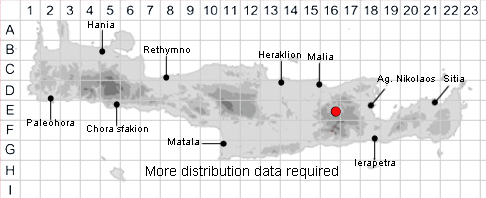SPECIES DESCRIPTION
IRIS ALBICANS
Family and Genus:- See- IRIDACEAE/Subgen. IRIS/Sect. IRIS
Common Names:- White iris
Homotypic Synonyms:- None
Meaning:- Iris (L) After Iris, the mythological messenger of the gods of the rainbow.
Albicans (L) Being white.
General description:- A robust medium to tall, rhizomatous perennial.
Rhizome:-
1) Thick, spreading on the surface of the ground.
Stems:-
1) To 80cm tall.
Leaves:-
1) 30-70 cm x 20-35 mm, ensiform, more or less straight, somewhat glaucous.
Flowers:-
1) (3-)4(-5), pure white, lower, subsessile on the main axis and enclosed by the
subtending bract up to anthesis.
2) Spathes, 35-55 mm, scarcely exceeding the hypanthial tube, scarious in the
upper 1/2-2/3, often tinged with purple.
3) Hypanthial tube, 17-25 mm.
4) Falls, 55-90 x 40-60 mm, cuneate-obovate, without a distinct claw.
5) Standards, 55-90 x 45-60 mm, broadly elliptical, with a short, wide claw.
Fruit:-
1) Seeds, pyriform rugose,reddish-brown.
Key features:-
1) Spathes, scarious in upper half.
2) Lower flowers ± sessile, enclosed by subtending bract up to anthesis.
Habitat:- Dry rocky habitats, field margins, graveyards, cultivated land, roadsides.
0-900 m. or higher.
Distribution:- Commonly cultivated in gardens and cemeteries and may persist for
some time in the outskirts of villages, hence true distribution figures are unavailable.
Flowering time:- Mar-Apr.
Photos by:- Steve Lenton
